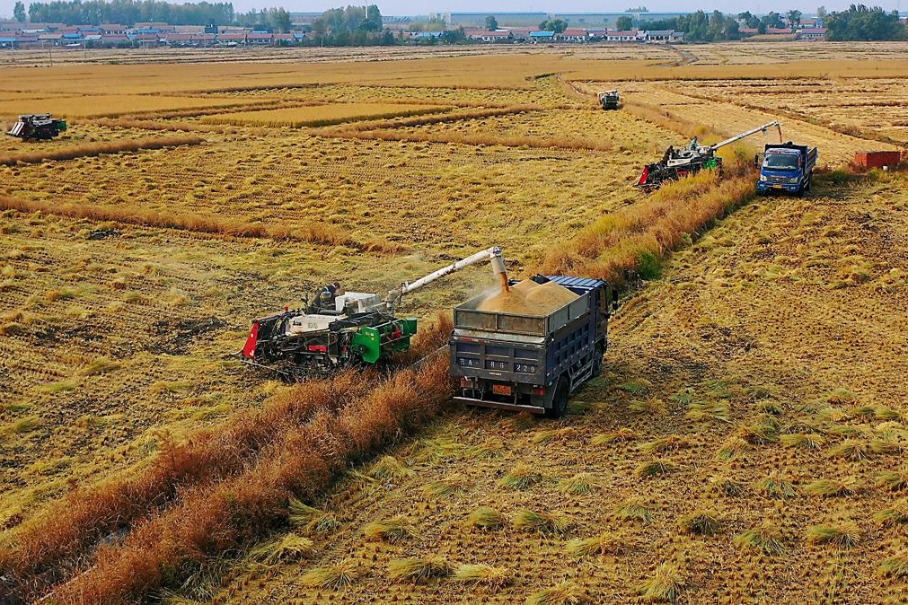Broad network boosts emergency food supplies

China has improved its emergency plans for food supplies by building a stronger response system and expanding the number of supply centers and enterprises involved, an official said on Tuesday.
Liu Huanxin, director of the National Food and Strategic Reserves Administration, made the remarks while answering a question on measures taken to enhance the country's food emergency response during natural disasters at a news conference on Tuesday.
"The country has established a food supply network consisting of seven regional emergency centers in key areas, including the Beijing-Tianjin-Hebei region, the Yangtze River Delta and the Guangdong-Hong Kong-Macao Greater Bay Area," Liu said.
"This network supports a tiered response mechanism. For smaller disasters, provinces manage the situation independently, while larger disasters trigger coordinated efforts across regions," he said.
In addition, China has designated a number of large grain processing and logistics enterprises as national emergency support companies, improving their ability to respond quickly and efficiently, he added.
Over the past five years, China has significantly boosted its food emergency capacity. Major cities now maintain at least 15 days' worth of grain and cooking oil reserves, Liu said.
The number of emergency food processing enterprises has increased 26 percent to 6,872, while the number of emergency supply outlets has risen 37 percent to 59,000. Daily processing capacity has grown 48 percent, meaning that food processed in a single day can meet two days' worth of consumption, he said.
The administration has also improved services for farmers, including enhancing post-harvest grain drying capacity and providing better storage guidance to reduce losses, particularly during bad weather.
Online and offline channels have been expanded to shorten waiting times and make grain sales more efficient, Liu said.
He noted that China's grain market remains stable and well supplied. The per capita grain availability has increased by 25 kilograms compared with 2020, reaching 500 kg — which is above the internationally recognized food security benchmark of 400 kg, he said.
"This ensures basic self-sufficiency in grains and absolute security in food supply," Liu said.
- Broad network boosts emergency food supplies
- China to advance fusion energy
- Macao Red Cross marks 105th anniversary
- IP Court vows to safeguard seed industry
- Mainland urges US to stop sending wrong signals to 'Taiwan independence' separatists
- China's top legislature schedules upcoming session in October





































